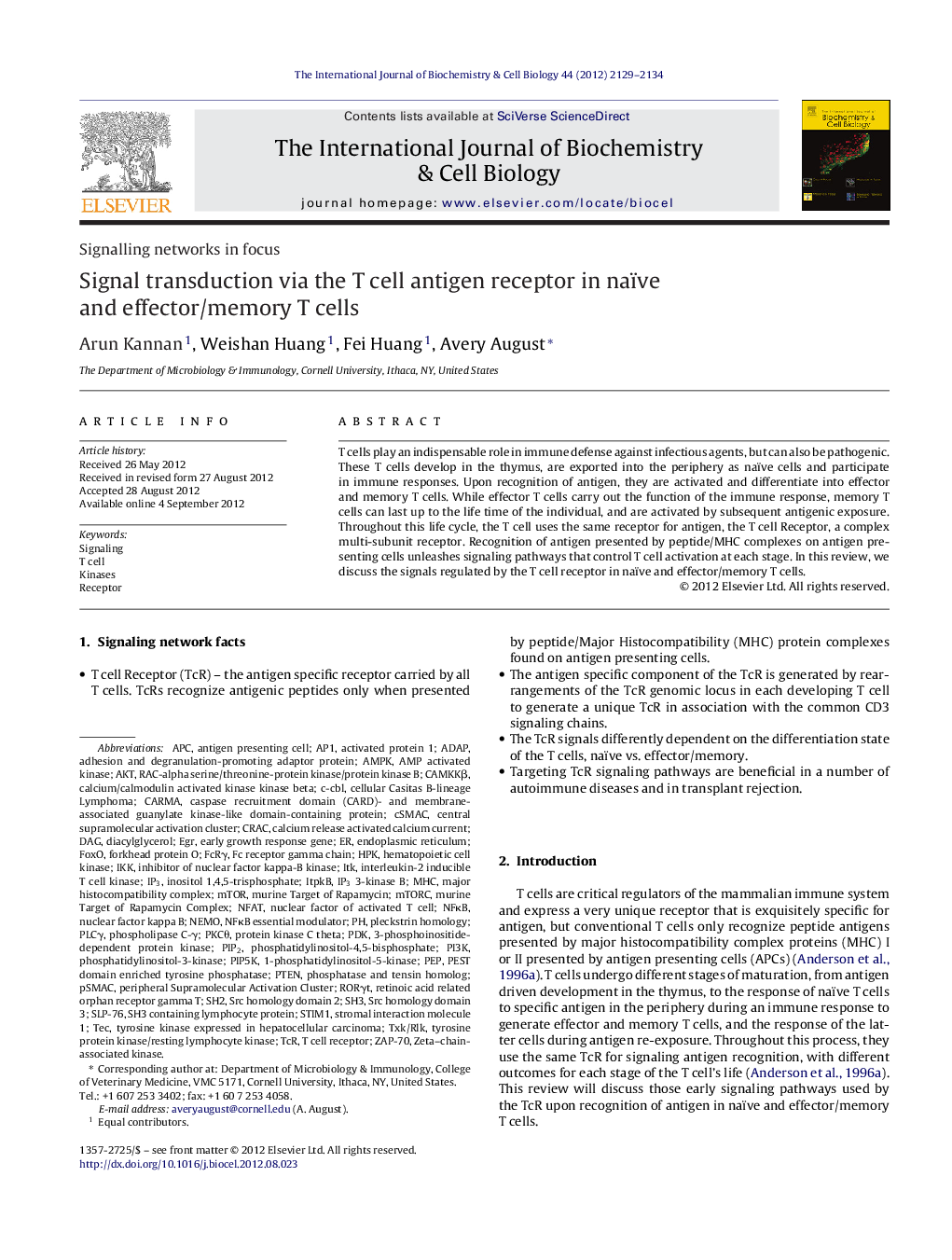| Article ID | Journal | Published Year | Pages | File Type |
|---|---|---|---|---|
| 1983832 | The International Journal of Biochemistry & Cell Biology | 2012 | 6 Pages |
T cells play an indispensable role in immune defense against infectious agents, but can also be pathogenic. These T cells develop in the thymus, are exported into the periphery as naïve cells and participate in immune responses. Upon recognition of antigen, they are activated and differentiate into effector and memory T cells. While effector T cells carry out the function of the immune response, memory T cells can last up to the life time of the individual, and are activated by subsequent antigenic exposure. Throughout this life cycle, the T cell uses the same receptor for antigen, the T cell Receptor, a complex multi-subunit receptor. Recognition of antigen presented by peptide/MHC complexes on antigen presenting cells unleashes signaling pathways that control T cell activation at each stage. In this review, we discuss the signals regulated by the T cell receptor in naïve and effector/memory T cells.
